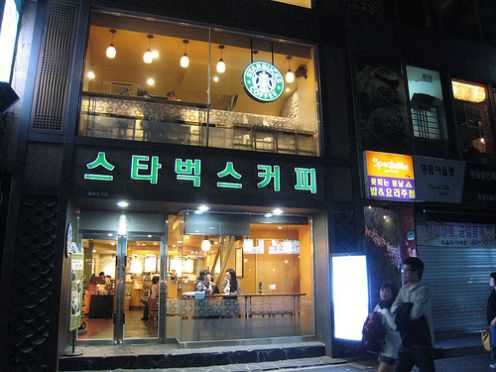SEOUL, South Korea – Looking toward the future, Starbucks Coffee Korea has recently announced bold commitments in service of this vision: it will reduce carbon footprint by 30% by 2025 and increase employment opportunities by 30% by 2025. “Since announcing our global aspiration to become resource positive, we continue to explore new ways to reduce our environmental impact across the Asia Pacific region,” said Sara Trilling, president, Starbucks Asia Pacific.
“Starbucks Coffee Korea is a leader in sustainability for the company globally, and we are excited to leverage the learnings from this initiative to drive meaningful change in our stores and inform future innovation on a regional and global scale.”
“As we work to create a more sustainable future, we are honored to continue our sustainability journey with our partners and customers and do better together to protect the planet we share,” said David Song, ceo, Starbucks Coffee Korea.
“Our goals are ambitious because we believe it is our responsibility to explore innovative ways to bring our communities and business partners together around this shared desire to make a positive impact for the planet.”
Starbucks Korea: Pathway to a Resource Positive Future
In line with Starbucks 2030 environmental goals to reduce its carbon, water and waste footprints by half globally, Starbucks Coffee Korea will leverage local opportunities and infrastructure to drive innovation around three key strategies:
- Shift from single-use to reusable packaging.
Starbucks plans to fully discontinue single-use cups in all stores across South Korea by 2025 and the company will gradually introduce cup circularity programs across the market to encourage reusability. Starbucks will launch a reusable cup program in select stores in Jeju this summer, expanding it to additional locations over the next four years. The program provides customers their beverage in a reusable cup for a small deposit and allows them to scan their cup at a participating store’s contactless return kiosk. This program helps Starbucks shift from single use to reusable packaging, bringing the company one step closer to its global goal of cutting its landfill waste in half by 2030. - Expand plant-based food and beverage choices for customers and develop new beverages highlighting premium local ingredients.
Starbucks will offer customers a variety of new ways to enjoy plant-based and local ingredients as part of their Starbucks Experience, as an environmentally friendly menu contributes to the company’s resource positive goal and customer interest in plant-based foods continues to see rapid growth. In addition to offering oatmilk as part of its core menu, Starbucks will develop beverages using local specialties from different regions of South Korea to bring premium local ingredients to customers. Through this initiative, Starbucks will accelerate beverage innovation by introducing five new beverages using Korean ingredients this year, plus an additional ten locally-sourced ingredients by 2025. - Innovate to design more sustainable stores and supply chain operations.
Starbucks will introduce more sustainable stores across South Korea as part of its global efforts to reduce its environmental impact. These stores adhere to environmental certifications and use power efficient products and lower impact materials, as well as logistics, manufacturing, and operational processes, to ensure Starbucks stores contribute to a sustainable future. As a first step in this initiative, Starbucks opened its Byuldabang store at the State Tower Namsan Building, using lower impact materials and equipment. Starbucks will also introduce zero-emission electric vehicles across its supply chain nationwide by 2024, with initial operations to begin in Seoul this year.
Expanding employment opportunities for underserved groups
In addition to new planet-positive initiatives, Starbucks will continue to support the well-being and aspirations of its partners (employees) by empowering them through career development and growth opportunities, while fostering a diverse, equitable and inclusive work environment.
By 2025, Starbucks commits to creating more than 5,500 new employment opportunities in South Korea, equating to 30% of its current workforce. Starbucks will also expand employment opportunities for underserved groups by 2025, with a focus on young graduates, returning mothers, elderly citizens, and people with disabilities.
Strengthening connections through expansion of Community Store model
Starbucks strives to strengthen every community it is a part of by being a good neighbor and creating a place of belonging, where everyone is welcome. The company will continue to expand and broaden its Community Store program in South Korea, as well as neighborhood cafés across the market, to reach 30 locations by 2025.
At the same time, Starbucks will increase collaboration with local artisans and businesses to bring thoughtful merchandise collections to customers.
Since entering the market in 1991, Starbucks Coffee Korea has grown rapidly to become Starbucks fifth largest international market, with more than 1,500 stores across 78 cities nationwide. South Korea is home to many firsts for the company – it is the first market globally to eliminate plastic straws through strawless lids and paper straw alternatives in 2018. It was also the first market in the region to introduce the Starbucks College Achievement Plan, and one of three Starbucks markets in Asia Pacific with the unique profit-sharing Community Store model.















